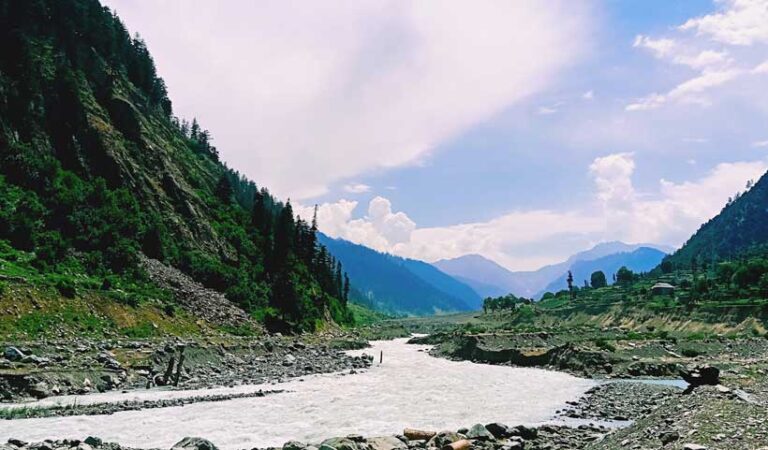Climate change is a global existential threat that requires concerted efforts by all countries to mitigate its effects and adapt to the inevitable consequences. Pakistan, with its diverse landscape and heavy reliance on agriculture, is particularly vulnerable to the adverse effects of climate change. Recognizing this, the Government of Pakistan, with the support of international partnerships such as the US-Pakistan “Green Alliance” framework, has undertaken numerous initiatives to address these challenges. This article delves into the various efforts Pakistan is making to combat climate change and the critical role of international cooperation in these efforts.
The US-Pakistan “Green Alliance” Framework
U.S. Deputy Chief of Mission Andrew Schaufer visited Lahore from April 25-28 and stressed the importance of addressing climate change, food security and energy issues through the U.S.-Pakistan Green Alliance. Together with his consuls general in Lahore, Karachi and Peshawar, Schaufer stressed the need for urgent action and collaboration in areas such as climate-smart agriculture, clean energy and water management. The Green Alliance is a strategic partnership designed to foster innovation, strong partnerships and diverse perspectives to address global challenges.
The Framework also supports specific initiatives such as the Women Scholars in Energy Programme, which aims to combat the impacts of climate change by empowering women in the energy sector, highlighting the interlinkages between gender equality and climate action and promoting a holistic approach to sustainable development.
Gender Equality and Empowerment
The U.S.-Pakistan partnership, with its focus on environmental issues, also contributes to advancing gender equality. During his visit, Vice President Shofar hosted an event celebrating the 20th anniversary of the English Language Access Scholarship Program, which has empowered more than 27,000 Pakistani students since 2004. The program not only improves English language proficiency, but also fosters leadership and economic independence, especially among women and girls.
Additionally, the U.S. government supports a variety of initiatives to empower women through sports, education, and professional development. Programs like the Women’s Entrepreneurship Academy and TechGirls Exchange Program aim to equip women with the skills and opportunities they need to succeed in a changing climate.
Cultural preservation and community development
Deputy Prime Minister Shofar’s visit, which included a tour of the Lahore Fort City, highlighted the U.S. government’s commitment to cultural preservation in Pakistan. 35 cultural preservation projects, including 20 in Punjab, have been funded at a cost of $8.4 million that not only protect Pakistan’s rich cultural heritage, but also contribute to economic development and community building.
Energy Efficiency and Renewable Energy
One of the key focuses of Pakistan’s climate strategy is energy efficiency. The country’s reliance on fossil fuels and severe energy shortages during peak demand periods necessitates a transition to more sustainable energy practices. According to the International Energy Agency, energy efficiency could deliver more than 40% of the greenhouse gas reductions needed to meet the goals of the Paris Agreement.
The UNEP-backed, Global Environment Facility-supported Energy Efficiency Project in Pakistan is an important step towards this goal. By promoting energy-efficient lighting, the project aims to save 1.3 terawatt-hours of electricity per year by 2030 and reduce carbon emissions equivalent to taking 630,000 cars off the road. This initiative will not only lower electricity bills, but also strengthen the country’s power grid and reduce reliance on fossil fuels.
Billion Tree Tsunami Project
Another pillar of Pakistan’s climate mitigation strategy is the Billion Trees Tsunami Project, launched in 2014. This ambitious initiative aims to reforest 350,000 hectares of degraded land and sequester more than 148 tonnes of carbon dioxide equivalent over the next 10 years. Such reforestation efforts are essential to increase biodiversity, improve air quality and provide sustainable livelihoods for local communities.
National Climate Change Policy of Pakistan (NCCP)
Pakistan’s comprehensive approach to climate change is outlined in the National Climate Change Policy (NCCP), which outlines the country’s vulnerabilities and suggests measures to mitigate and adapt to climate impacts across various sectors.
- Water Resource ManagementAs Pakistan is highly dependent on the Indus River system, the NCCP places emphasis on improving water storage capacity, efficient water use and adopting integrated water resources management approaches.
- AgricultureThe policy promotes climate-resilient crops, improved irrigation methods and sustainable agricultural techniques to ensure food security in the face of changing climatic conditions.
- Disaster preparednessStrengthening early warning systems and enhancing community-based disaster risk management are key components of the NCCP to prepare for climate-induced disasters.
- Energy Efficiency and Renewable EnergyThe policy promotes energy conservation, energy efficiency and a shift to renewable energy sources to reduce greenhouse gas emissions.
- Afforestation and reforestationIncreasing forest cover through sustainable practices is essential for carbon sequestration and biodiversity conservation.
- Public awareness and capacity buildingNCCP emphasizes the importance of raising public awareness about climate change and building the capacity of institutions and communities to effectively address climate issues.
Climate change poses a major threat to Pakistan’s sustainable development. However, through strategic initiatives such as the U.S.-Pakistan Green Alliance Framework, the Billion Tree Tsunami Project, and a comprehensive National Climate Change Policy, Pakistan is taking proactive steps to mitigate and adapt to these challenges. International cooperation and assistance, coupled with strong domestic policies, are essential in building Pakistan’s resilience and ensuring a sustainable future. By fostering innovation, empowering communities, and prioritizing environmental sustainability, Pakistan is paving the way for a more resilient, climate-resilient future.

